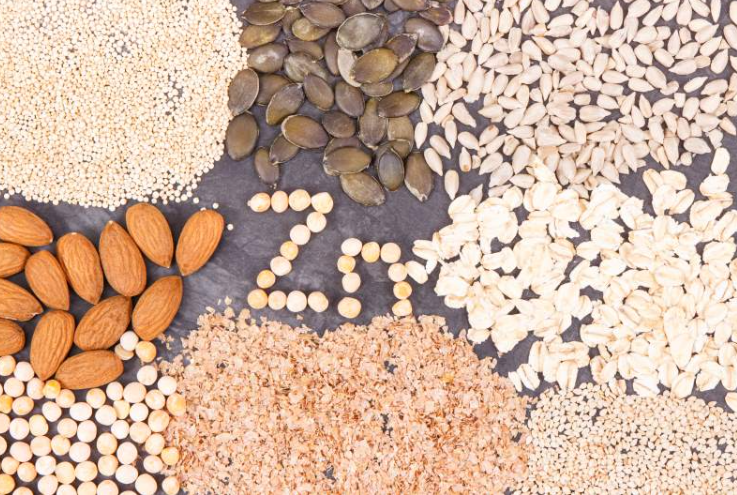
Zinc: Benefits, Deficiency, Sources and Supplementation
16th Oct 2024
Importance of Zinc:
Zinc is one of the lesser talked about micronutrients that you must include in your daily diet. It is the tenth most common element in the body, and is vital to the functioning of more than 300 hormones and enzymes.
Lately, it has been gaining attention as an immunity booster to fight against cold and flu. However, it does way more than strengthening your immunity and has key functions in cellular activity. Zinc is an important nutrient for growing children as it is a significant contributor to skeletal, epidermal, gastrointestinal, central nervous, and reproductive health. Let’s take a deep dive into zinc and why it is an essential nutrient for the human body!

Zinc and its functions
Zinc is a trace mineral (i.e., only a small amount is needed by the body) present in many body tissues and organs, yet you need it in optimal levels to stay in good health.
1. Enzyme Activity:
Zinc is a cofactor for numerous enzymes involved in essential physiological processes. These enzymes play a crucial role in DNA synthesis, protein metabolism, and other biochemical reactions that are vital for the proper functioning of cells.

2. Cell Growth and Division:
Zinc is essential for cell growth and division. With effective cell growth, the body’s ability to heal itself increases. This in turn helps you maintain strength in skeletal and muscular systems. It is particularly important during periods of rapid growth, such as childhood, adolescence, and pregnancy.

3. Neurotransmitter Regulation:
Zinc is involved in the regulation of neurotransmitters, the chemical messengers in the brain. This role makes zinc crucial for cognitive function, mood regulation, and overall mental well-being. In fact, in many studies, high zinc levels have played an effective role in reducing depressive symptoms.
4. Metabolism of Nutrients:
Zinc plays a role in the metabolism of carbohydrates, fats, and proteins. It aids in the breakdown of these macronutrients, ensuring that the body can efficiently utilize the energy and nutrients derived from food.

5. Defends against leaky gut:
Studies have shown a strong link between zinc deficiency and the leaky gut syndrome. Leaky gut is an ailment where the intestinal lining is harmed in any way. Zinc helps in tightening the leaky gut.
6. Immune System Support:
Zinc plays a pivotal role in supporting the immune system. It is involved in the production and function of immune cells, helping the body defend itself against infections and illnesses.

7. Wound Healing:
Zinc is crucial for the healing of wounds and the maintenance of healthy skin. It promotes collagen synthesis, a protein essential for skin elasticity and repair.
8. Antioxidant Properties:
As an antioxidant, zinc helps combat oxidative stress and free radical damage in the body. This is crucial for preventing chronic diseases and supporting overall cellular health.

9. Hormonal Balance:
Zinc is involved in the regulation of hormones, including those that influence mood and stress levels. Adequate zinc levels can contribute to a balanced and stable mood.
10. Improves Male Sexual Performance:
Zinc helps in maintaining testosterone levels in your body. It is also used to help men with erectile dysfunction and boosting sperm count. Zinc is an important mineral for the growth and development of male reproductive organs.
